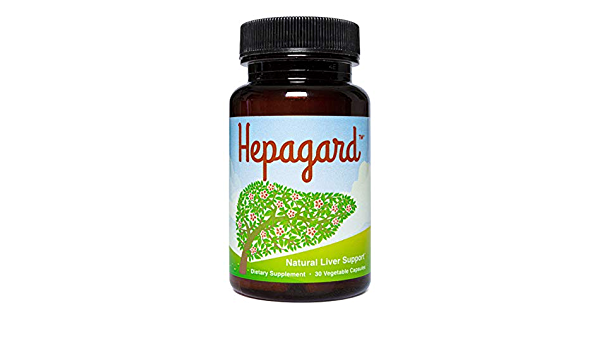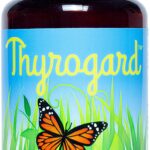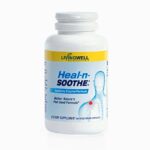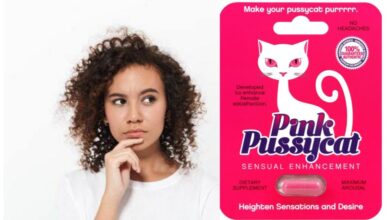Is Hepagard Safe?

Hepagard is a dietary supplement produced by Nutreance and used in the treatment of liver disease. It protects the liver from harmful chemical substances and improves the functioning of the liver and prevents liver disease by reducing fat accumulation in the liver and detoxing the body.
Fatty liver disease (steatosis) is a common condition caused by having too much fat build up in your liver. A healthy liver contains a small amount of fat. It becomes a problem when fat reaches 5% to 10% of your liver’s weight.
In most cases, fatty liver disease doesn’t cause any serious problems or prevent your liver from functioning normally. But for 7% to 30% of people with the condition, fatty liver disease gets worse over time. It progresses through three stages:
- Your liver becomes inflamed (swollen), which damages its tissue. This stage is called steatohepatitis.
- Scar tissue forms where your liver is damaged. This process is called fibrosis.
- Extensive scar tissue replaces healthy tissue. At this point, you have cirrhosis of the liver.
Nutreance Hepagard contains 5 natural hepatoprotective ingredients that include:
- Milk Thistle
- N-Acetyl Cysteine
- Dandelion Root
- Artichoke Leaf
- Choline Bitartrate
Is Hepagard safe?
Nutreance Hepagard is generally considered safe when taken in the recommended amount. Dietary supplement like Hepagard are regulated by the FDA as food, not as drugs, as a result they do not go through the rigorous testing process required for drugs. However, many dietary supplements contain ingredients that have strong biological effects which may conflict with a medicine you are taking or a medical condition you may have, it is recommended that you consult with your doctor or healthcare provider before taking Hepagard.
Do not take Hepagard with most prescription and over-the-counter medications without discussing with your doctor or healthcare provider. When taken as directed, Hepagard is safe, poses no short-term or long-term health risks, and is not addictive or habit-forming.
What are the side effects of Nutreance Hepagard?
Do not take Nutreance Hepagard if you are allergic to any of the ingredients, some of the side effects that can be cause by its component ingredients includes:
Milk Thistle: can trigger allergic reactions. People who are allergic to artichokes, kiwi, ragweed, daisies, marigolds, and chrysanthemums are at higher risk. People who have diabetes or endometriosis should check with a doctor before using milk thistle. While milk thistle has been traditionally used in pregnant and breastfeeding women, its safety is unknown. If you’re pregnant or breastfeeding, check with your doctor before using milk thistle. Milk thistle is not recommended for children. In some people it causes nausea, diarrhea, itching, and bloating.
N-Acetyl Cysteine: can cause side effects such as dry mouth, nausea, vomiting, and diarrhea. It has an unpleasant odor that some people find hard to tolerate.
Dandelion Root: This is likely safe for most people when consumed in the amounts commonly found in food. It is possibly safe when taken in larger amounts. Dandelion might cause allergic reactions, stomach discomfort, diarrhea, or heartburn in some people.
Artichoke Leaf: In some people, artichoke can cause side effects such as gas, upset stomach, and diarrhea. Artichoke might also cause allergic reactions. People at the greatest risk of allergic reactions are those who are allergic to plants such as marigolds, daisies, and other similar herbs.
Choline Bitartrate: Getting too much choline can cause a fishy body odor, vomiting, heavy sweating and salivation, low blood pressure, and liver damage. Some research also suggests that high amounts of choline may increase the risk of heart disease.
Is it safe to consume alcohol while taking Hepagard?
In general, consumption of moderate amounts of alcohol is safe while taking Hepagard. However, we do not recommend that you consume large quantities of alcohol until you are familiar with how Hepagard affects your body.
Can I take Hepagard if I am currently taking diabetes medication?
In general, Hepagard can be safely combined with prescription alpha glucosidase inhibitors, including Precose® (acarbose), Glyset® (miglitol), as well as biguanides, including Kazano®, Invokamet®, Glucovance®, and other metformin drugs. If you are currently taking prescription medication, we advise that you talk to your doctor before taking Hepagard or any new supplement.
Will Hepagard interact with my birth control pills?
Hepagard will not reduce the effectiveness of birth control or interact with contraceptive medication. However, we advise that you talk to your doctor before taking Hepagard or any new supplement.





